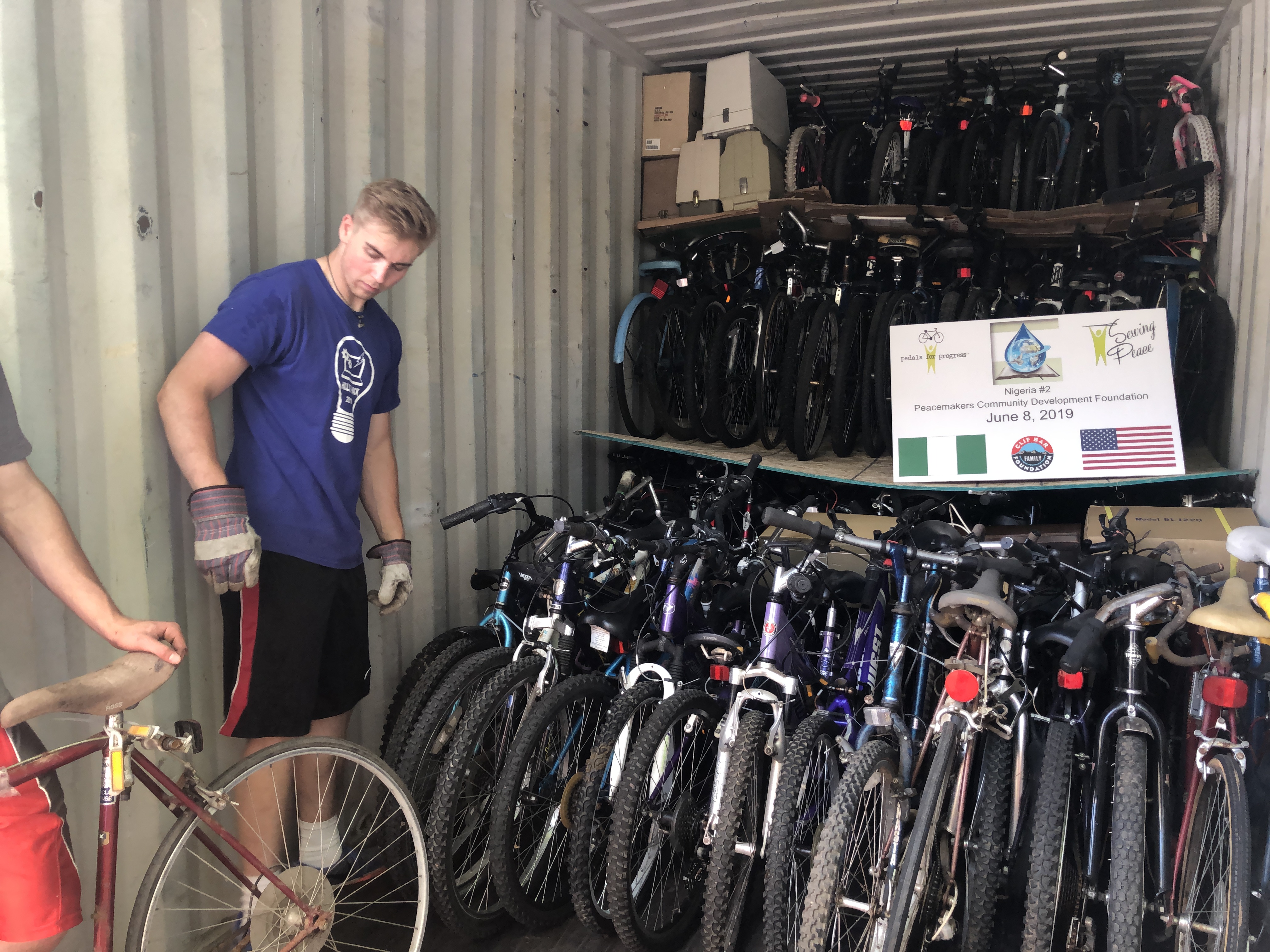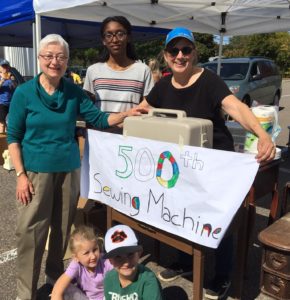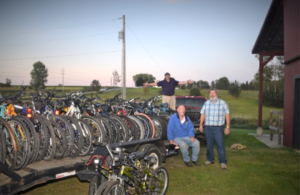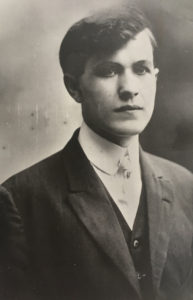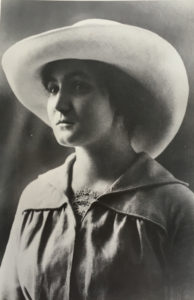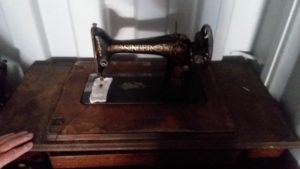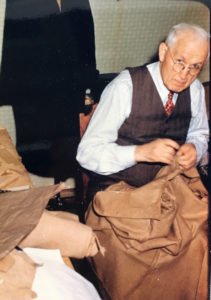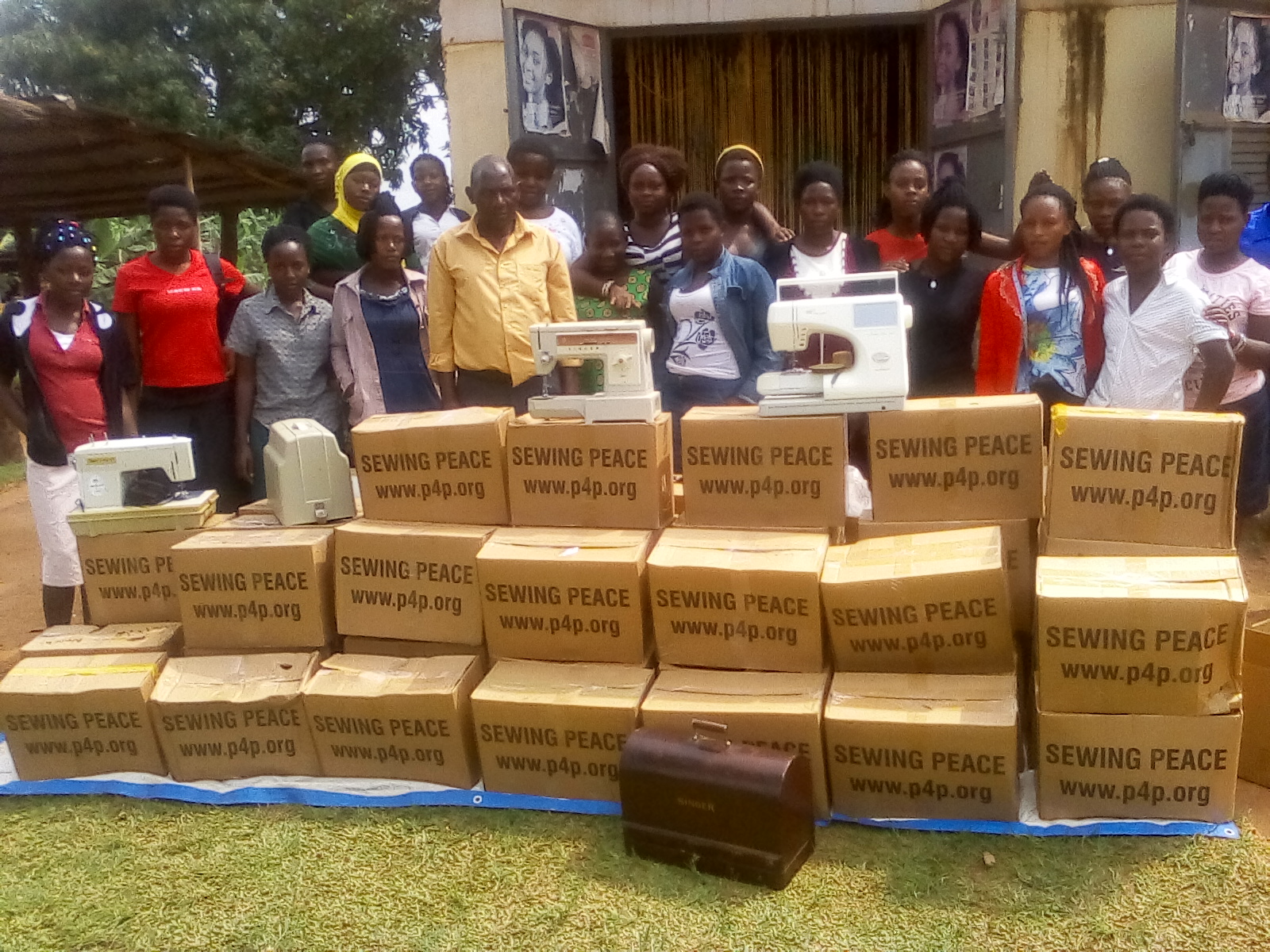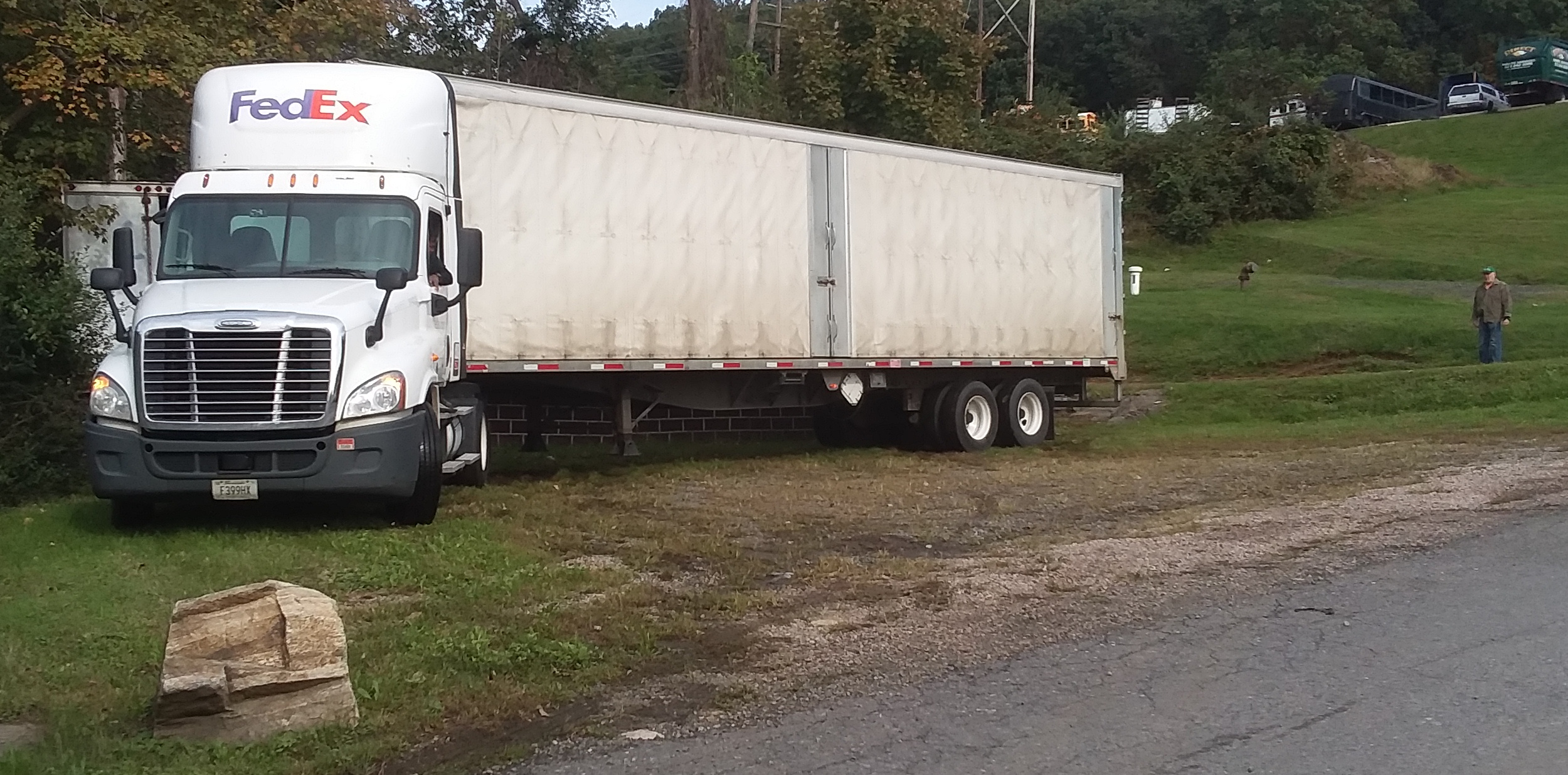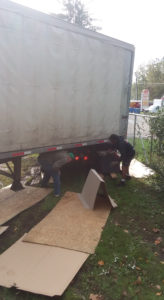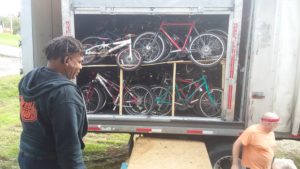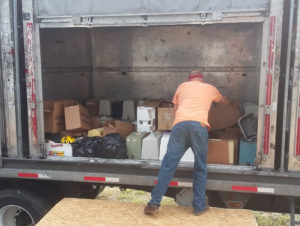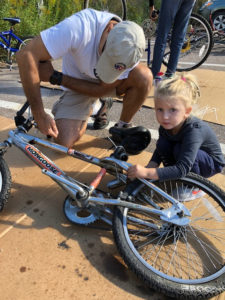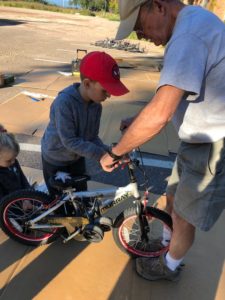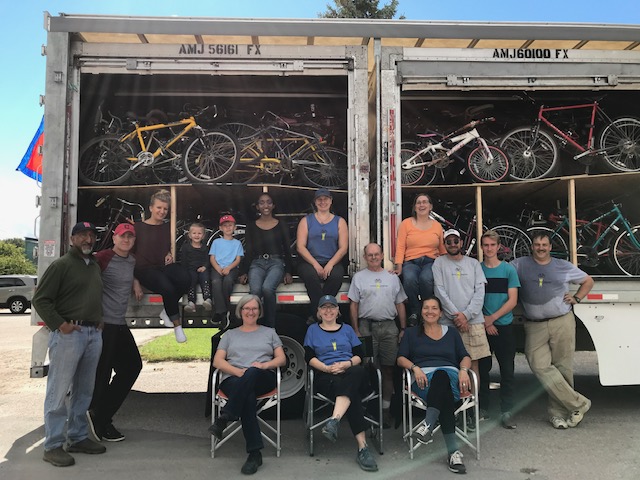Dear Pedals for Progress and Sewing Peace supporters,
We live in interesting times! Who could have guessed? With the present circumstances with the coronavirus it becomes incumbent upon all decision-makers to make decisions. While a spring cessation of collection activities will be decisively negative to the empowerment and development we do overseas, for our employees, collection sponsors, and the general donating public, for the immediate future, this seems like a no-brainer. We are in the time of crisis when we need to band together, independently with social distancing, to confront the crisis that immediately threatens us.
I am canceling all bicycle and sewing machines collections scheduled before June 1 April 20, 2020.
Pedals for Progress and Sewing Peace are my dream. My sole endeavor has been to find a way through thoughtful recycling to help needy populations worldwide. For three decades we have been able to be successful and I have hopes we will continue in the future. However at this particular time in history, there exists a great existential financial threat to our institution. We need to cancel many of our most essential fundraising activities: bicycle and sewing machine collections.
Donations at bicycle and sewing machine collections represent a significant amount of our total income. While it is uncertain if we can survive such a blow, it is even more evident that we cannot put our staff, collection sponsors, and potential donors in harm’s way. At this time, every person and institution needs to do their part to help stop the spread of the virus.
While I am presently completely assured of the correctness of this decision, I, like most, do not have clarity into the length of the necessary cessation of activity. This is such a fluid moment that it’s very hard to tell what is true; there is just a lack of reliable information.
I gave the collection sponsors authority to reschedule or cancel their spring collection if it was in their best interests. I want to humbly thank the collection sponsors for their insistence to try to move on with the collections and get by this current virus problem. However as President, the buck stops here! At the end of the day I am responsible for everything that is done under the name of Pedals for Progress and Sewing Peace. I accept this responsibility, always have, and take that responsibility with great humility.
A few years ago I listened to Channel 13 and one of the sponsors talked about a more burdened society. A burdened society is a society that has trouble providing for basic human needs, not only material goods but also social and political culture. It is incumbent on us in the international community to help burdened societies: to look out for the most vulnerable and promote the well being of all.
Canceling spring collections could have a devastating effect to our finances and that of our partner programs around the world. It does not however change the fact that I need to announce the cancellation of all bicycle and sewing machines collection before June 1 April 20, 2020. I am hopeful that as the springtime warmth returns, the virus will look less threatening and those early spring collections which are so critical to our overall success can be rescheduled to the fall or to June and July. I, like all of you, am hoping for a quick and immediate end to this crisis. Meanwhile we all need to act in the interest of our greater society for calm and safety.
I plead with you to continue supporting Pedals for Progress. We are a small institution doing vital work but this sort of financial threat could potentially be quite devastating. We are doing the best we can given the situation we are put in. I promise that we will always do the best we can do to fulfill our mission as soon as we can get out there doing public collections once again.

David Schweidenback
President, Pedals for Progress / Sewing Peace
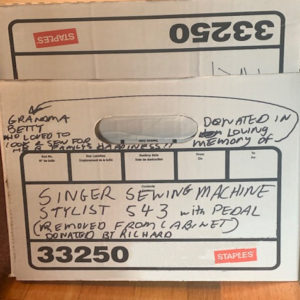 We got a sewing machine with a lovely personal message written on the box it came in. Here’s the note we got when we asked the donor about Grandma Betty.]
We got a sewing machine with a lovely personal message written on the box it came in. Here’s the note we got when we asked the donor about Grandma Betty.]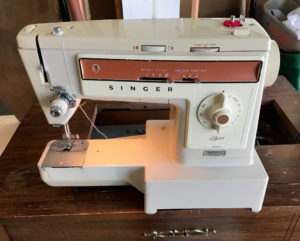 I have held on to the sewing machine for 25 years, during which time it got very little use. I am very happy that it will find a new home. Grandma Betty would have been very pleased to know that her sewing machine will be getting a second life that will help enable those in need to help support themselves and their family through use of her donated Singer Stylist 543, and thus perpetuating her credo – love of family.
I have held on to the sewing machine for 25 years, during which time it got very little use. I am very happy that it will find a new home. Grandma Betty would have been very pleased to know that her sewing machine will be getting a second life that will help enable those in need to help support themselves and their family through use of her donated Singer Stylist 543, and thus perpetuating her credo – love of family.



